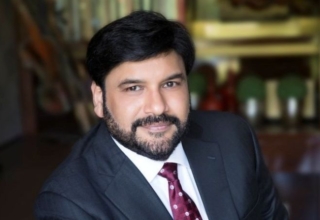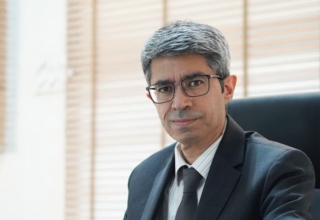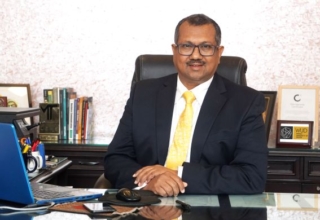
In January 2022, Summit India, a non-profit trust promoted by Shyam Jaju, former BJP national VP and ABVP leader, launched a three-month long Virtual Education Summit focused on NEP 2022. The series began on January 27 and was inaugurated by President Ram Nath Kovind. It will continue till April 9 and will have 14 parts. The virtual conference is being supported by Bangalore-based software firm, Tech Avant-Garde (TAG) and others. Autar Nehru in an email interaction with Ali Sait, CEO, Tech Avant-Garde, who is also the head of south India chapter of the event, tried to understand ongoing virtual series. Some excerpts:
Specifically in the context of Vasudhaiva Kutumbakam Education Summit 2022, please tell us the significance of choosing the title and duration of 3-months?
Today education is in crisis; only 20% of Indian students have access to formal education. This problem exists worldwide. When we got across to academia with hope of Hybrid Learning, we called this initiative as Vasudhaiva Kutumbakam – World is one Family, message is we should support each other to come out of the crisis. We curated this program on different aspects of NEP 2020, which has 14 parts. That is the reason the program extends to over 3 months.
Did NEP 2020 trigger this thought or perhaps the need of a rethink in the wake of pandemic and rapid shift to online? Is the Government supportive of this initiative?
NEP 2020 and Hybrid Learning goes hand in hand, NEP 2020 in a new age document, which has come just in time to transform Indian education to comply with Knowledge Age Learning. In Knowledge Age Learning, digital learning infrastructure is necessary. The pandemic has made the adoption of technology in education faster. The Government is supporting Digital Transformation in Education and they have completely backed our program.
Can we say this is essentially an ed tech oriented series of events, to bring ed techs of India on a single platform and provide them this platform in an overarching quest for changing the narrative on digital education by making it more acceptable in the country?
It is much more than collusion with edtechs. This program is about Education 3.0, the first genre of education was Gurukul System where a teacher could stand anywhere and teach. The second genre of learning was four walls of the classroom where brick and mortar infrastructure was a necessity for conducting formal education. Hybrid Learning is the third genre of learning where learning can happen from anywhere anytime and from any device, for this digital infrastructure is a necessity. The suppliers for this learning system are the edtechs, therefore; we have brought in these suppliers so that the academia will know how to equip themselves. In this program apart from technology we have explained on NEP 2020, digital pedagogy etc., it covers 360 degrees on the future of education.
Coming to the structure and architecture of the Summit, can you briefly tell us what kind of calendar will be followed? We have already seen a high profile inaugural session.
The Calendar is as follow:
At the end of the Summit, will we expect some papers/reports?
Yes, we have invited all the stakeholders of education to the summit viz. Industry Experts, Bureaucrats, Technocrats, Educationists, Government Representatives, Examination Boards, Members of School Management, Principals, Teachers, Parents and associated service providers. Interaction with these stakeholders have given us very rich insights on the current scenario and future of education. We definitely would like to produce a paper on the outcomes of the summits and share it with media houses who are willing to publish the same.
Now coming to a few general questions. You have been one of the pioneering digital ambassadors in this country; your partnership with Microsoft is also helping for instance a large number of teachers besides your routine services. Tell us where schools, students and teachers draw a line between offline and online?
Hybrid Learning is the only way forward it lends toward personalized learning, adaptive learning and adaptive testing. The system will help people realize their potential and their talents. NEP 2020 is proposing a repository of credit systems, which will give the learner the flexibility of taking subjects of their choice from different institutions / universities and get certified on collective credits.
We along with Microsoft are training teachers on Hybrid Learning and on different learning Apps, which are personalized learning. We are trying to make our teachers global educators. This will help our teachers earn by teaching students from across the world. We also have a MOU with NCERT for teacher training. Our aim is to train all 95 lac teachers on Hybrid Learning by 2024.
Also, I will be keen to know how soon can VR/AR become commonplace in our education delivery?
We are implementing AR / VR and mixed reality in many schools, two factors have to be taken care of before it becomes ubiquitous.
- The AR / VR equipment which is quite costly
- The teacher training
We are trying to work on both these challenges so that every school can have AR / VR and mixed reality as a standard offering.
Lastly, there is a concern that ed tech companies are trying to take the role of educators, universities and also resorting to seducing gullible parents to long subscriptions. Do we need a policy to regulate this space now?
The edtech companies can never solve the problem of formal education. Formal education responsibility will always lie with schools and colleges. The edtech companies have always crowded in the tutorial space. No one can regulate this space. With the World Wide Web, information cannot be regulated. Our formal system has to be very strong and progressive so that the tutorial system will not stand a chance.
Thank you











